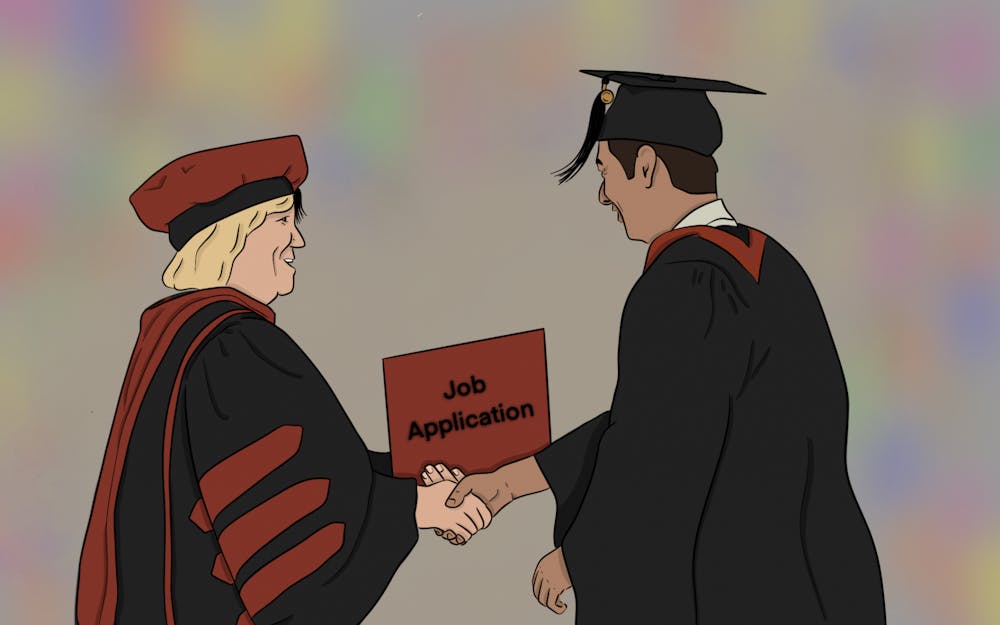College is an investment. Students have understood this for decades.
In the past, many students were able to work their way through college by finding work during the semester and finding summer jobs to cover their tuition and housing costs. They might take out minimal loans, but their future earnings often covered the loan repayments and then some.
I've had professors talk about this as well, marketing the skills learned in classes as good knowledge for your future career. But now, it seems like job training is the only reason universities admit students.
At a time where prices are rising at rates surpassing wage increases, this seems to be the only factor in determining whether someone attends college: what return will this degree give me?
As an economics student, I completely understand wanting a return that will, at the very least, match the cost of attending university. Especially now, when the cost of tuition is at an all-time high and starting wages have stagnated, students are searching for the degree with the highest future yield.
Again, this is not a bad practice. It's good to see that students at least understand the substantial price they're paying and the return that different degrees pay. However, it's concerning to see students forgo studying topics they may find interesting, for something they don't enjoy as much, but that will "pay the bills."
I cannot tell you how many times I've heard students exclaim that they're just paying for the piece of paper they receive at graduation. From the sound of it, college has just become a glorified job training program. Many schools and departments at IU now specifically curate and cater the curriculums and courses to focus teaching technical skills used in the workforce.
This isn't necessarily a problem, but it seems like these disciplines would be better served under a different designation, such as a trade school or other skills training program.
Universities could even adapt this into their degree offerings. They could reassess tuition costs and market them differently for individuals who didn't initially want to pursue a strictly academic degree.
College students' goals are shifting, and universities should adapt in turn. Universities could alter degree programs where students with different career plans can choose which option would better suit them in their post-graduation pursuits. One could be a research oriented curriculum, where students might continue into graduate school to pursue research, and the other could be a more career-oriented program.
Universities could then work closely with employers to understand what sort of skills and topics students should learn to work in certain positions. They could also set up internships and apprenticeship programs where students could gain valuable working experience earlier on in their studies to make the transition into the workforce smoother.
This isn't an entirely new concept, at least to me. In high school, I took a slew of engineering courses, many of which adapted this model.
Coming from a small manufacturing town, many of the courses had the class split into two: a manufacturing-oriented track, where students focused more on working hands-on with complex machines and fabrication technologies, and an engineering-oriented track, where students focused more on the mathematical and design aspects of manufacturing.
This could be very beneficial and even lucrative for universities, since they are included in the transaction as well. Colleges could boost enrollment at a time where fewer students are attending traditional universities and subsequently increase their revenue.
After all, that's what both parties are concerned with in any transaction.
Sean Gilley (he/him) is a senior studying political science and economics with a certificate in informatics.






